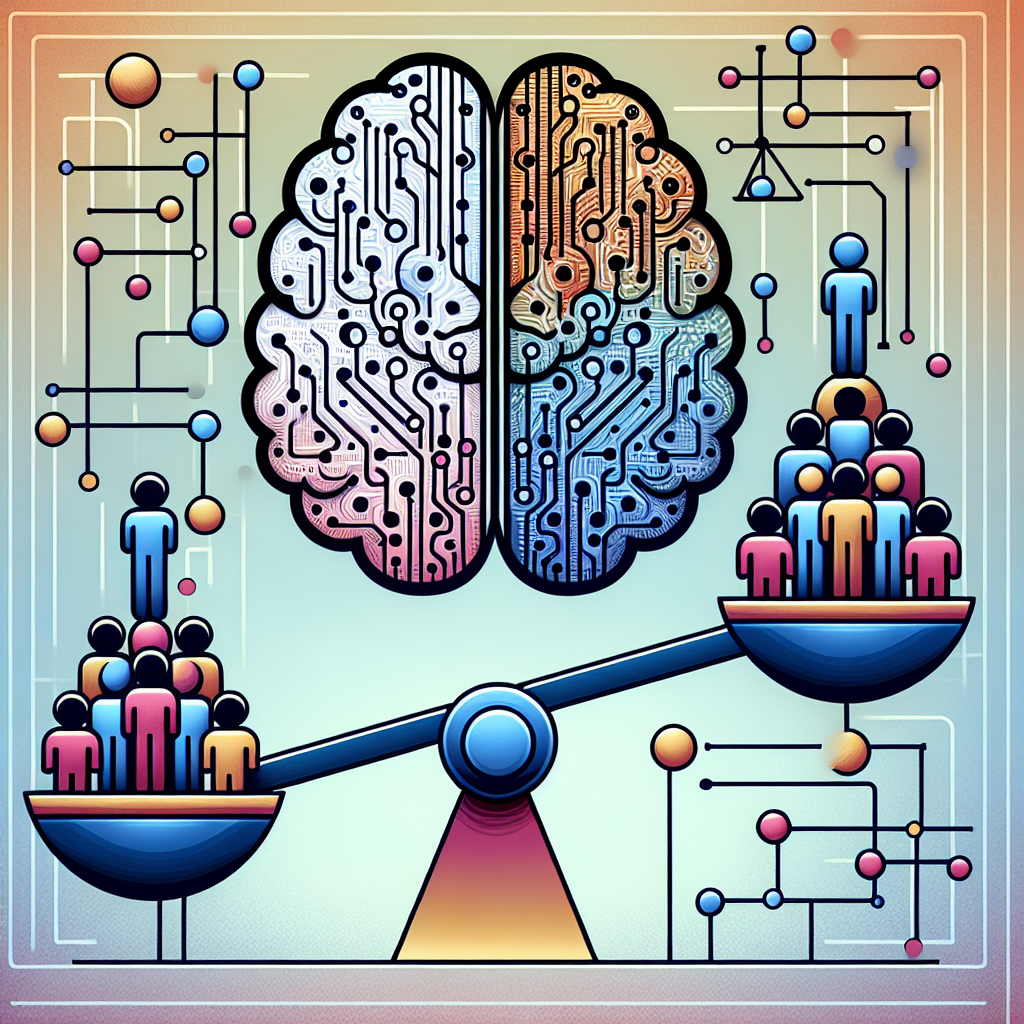Artificial General Intelligence (AGI) is a concept that has long been the stuff of science fiction, but recent advances in technology have brought us closer than ever to making it a reality. AGI refers to a type of AI that possesses the ability to understand, learn, and apply knowledge across a wide range of tasks and domains, much like a human being. While AGI has the potential to revolutionize countless aspects of our society, it also presents a number of challenges and ethical dilemmas that must be carefully considered as we move forward.
Opportunities of AGI in Society
The potential benefits of AGI are vast and varied, with the ability to impact nearly every sector of society in a positive way. Some of the key opportunities that AGI can offer include:
1. Increased Efficiency: AGI has the potential to automate a wide range of tasks, leading to increased efficiency and productivity across a variety of industries. This could result in lower costs, faster turnaround times, and improved quality of output.
2. Improved Healthcare: AGI can be used to analyze vast amounts of medical data to help diagnose diseases, develop personalized treatment plans, and even assist in surgical procedures. This could lead to more accurate diagnoses, better outcomes, and lower healthcare costs.
3. Enhanced Education: AGI has the potential to revolutionize education by providing personalized learning experiences for students, identifying areas where they excel and areas where they need additional help. This could lead to improved academic performance and increased engagement in the learning process.
4. Safer Transportation: AGI can be used to improve the safety and efficiency of transportation systems by analyzing traffic patterns, predicting accidents, and optimizing routes. This could lead to fewer accidents, reduced congestion, and lower emissions.
5. Environmental Conservation: AGI can be used to analyze environmental data and develop strategies for conservation and sustainable resource management. This could help us better understand and address issues such as climate change, deforestation, and pollution.
Challenges of AGI in Society
While the potential benefits of AGI are undeniable, there are also significant challenges and ethical considerations that must be addressed as we move forward. Some of the key challenges of AGI in society include:
1. Job Displacement: One of the most pressing concerns surrounding AGI is the potential for widespread job displacement as automation becomes more prevalent. As AI systems become more advanced and capable of performing a wide range of tasks, there is a risk that many jobs will be replaced by machines, leading to unemployment and economic instability.
2. Bias and Discrimination: AGI systems are only as good as the data they are trained on, and if that data is biased or incomplete, the AI system may perpetuate or even amplify existing biases and discrimination. This could have serious implications for issues such as hiring practices, criminal justice, and healthcare.
3. Security and Privacy: AGI systems have the potential to collect and analyze vast amounts of personal data, raising concerns about privacy and security. If this data falls into the wrong hands or is misused, it could have serious consequences for individuals and society as a whole.
4. Control and Governance: As AGI systems become more advanced and autonomous, there is a need for clear guidelines and regulations to ensure that they are used ethically and responsibly. Without proper oversight, there is a risk that AGI systems could be misused or manipulated for nefarious purposes.
5. Existential Risk: Some experts have raised concerns about the potential existential risk posed by AGI, warning that if AI systems become too advanced and beyond human control, they could pose a threat to the future of humanity. While this scenario may seem far-fetched, it is a possibility that must be taken seriously.
FAQs about AGI
Q: What is the difference between AGI and narrow AI?
A: AGI refers to a type of AI that possesses the ability to understand, learn, and apply knowledge across a wide range of tasks and domains, much like a human being. Narrow AI, on the other hand, is designed to perform specific tasks or functions within a limited domain.
Q: How close are we to achieving AGI?
A: While significant progress has been made in the field of AI, true AGI remains a distant goal. Experts disagree on how far we are from achieving AGI, with estimates ranging from a few decades to a century or more.
Q: What are some examples of AGI in use today?
A: While true AGI does not yet exist, there are examples of AI systems that demonstrate some aspects of general intelligence, such as language translation, image recognition, and game playing. These systems are often referred to as “narrow AGI” or “AGI-like.”
Q: How can we ensure that AGI is used ethically and responsibly?
A: Ensuring that AGI is used ethically and responsibly will require a combination of regulations, guidelines, and oversight mechanisms. It will also be important for developers, policymakers, and society as a whole to engage in ongoing dialogue and discussion about the ethical implications of AGI.
Q: What can individuals do to prepare for the impact of AGI on society?
A: Individuals can prepare for the impact of AGI on society by staying informed about developments in the field of AI, engaging in discussions about the ethical implications of AGI, and advocating for policies that promote transparency, accountability, and fairness in the use of AI systems.
In conclusion, AGI has the potential to revolutionize nearly every aspect of society, offering opportunities for increased efficiency, improved healthcare, enhanced education, safer transportation, and environmental conservation. However, the challenges and ethical considerations surrounding AGI must be carefully considered and addressed as we move forward. By navigating these opportunities and challenges thoughtfully and responsibly, we can ensure that AGI benefits humanity while minimizing the risks.

